|
Progressive
Men of Iowa
1899
Progressive Men Index
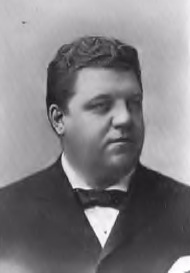 BALDWIN,
John Nehemiah, one of the most distinguished sons of Iowa,
born in the city of his present residence, lives in Council
Bluffs, and is a lawyer of national reputation. His father,
Hon. Caleb Baldwin, was formerly chief justice of the supreme
court of the state of Iowa, and was one of the ablest lawyers
in the west. His wife, John N. Baldwin's mother, was Miss Jane
Barr, prior to her marriage with Caleb Baldwin, in 1848. BALDWIN,
John Nehemiah, one of the most distinguished sons of Iowa,
born in the city of his present residence, lives in Council
Bluffs, and is a lawyer of national reputation. His father,
Hon. Caleb Baldwin, was formerly chief justice of the supreme
court of the state of Iowa, and was one of the ablest lawyers
in the west. His wife, John N. Baldwin's mother, was Miss Jane
Barr, prior to her marriage with Caleb Baldwin, in 1848.
Their
son, John N., was born in Council Bluffs, July 9, 1857. He
received a thorough education in the schools of Council
Bluffs, and when only a boy entered the law department of the
State university, and graduated with high honors in 1877, at
the age of 20 years. The next year he was married, December
18th, to Miss Lilia G. Holcomb. They have two children,
Genevieve H., born September 20, 1879, and John N., Jr., born
March 18, 1888. Mr. Baldwin has won distinction as a lawyer
and political speaker. He is one of the most successful
corporation lawyers west of Chicago, and to his firm of Wright
& Baldwin are entrusted the interests of a large majority
of the corporations operating in Council Bluffs, and many
others. The firm's practice is
confined to cases involving large amounts or important law
questions, and includes the United States supreme court.
The
political arena has always held a charm for Mr. Baldwin, but
he has never allowed himself to be a candidate for any office.
He has used his splendid ability to advance the interests of
others, his friends and the republican party. He was temporary
chairman of the republican state convention, in Des Moines,
July, 1894, and delivered a speech that fulfilled all the high
expectations his friends had entertained. It was one that will long be remembered for its beauty
of language, strength of ideas and force. Mr. Baldwin was
selected by the friends of Senator Allison to present his name
to the republican national convention, in St. Louis, in June,
1896, and again he delivered a memorable speech that attracted
national attention. In the presidential campaign that
followed, Mr. Baldwin spoke under the direction of the
republican national committee, visiting several states. Yet a
young man, a career of great usefulness and renown is opening
for this brilliant lawyer.
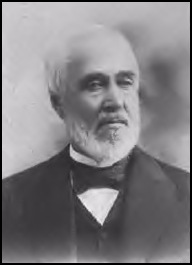 BLOOMER, D. C., LL. D. The public record and
private life of Dexter Chamberlain Bloomer, of Council Bluffs,
are so filled with good deeds that they must go into the
state's history together. Surely his is a career typical of
true Americanism. He was born in Scipio, N. Y., July 4, 1816,
of good Quaker stock, which came from England in an early day. BLOOMER, D. C., LL. D. The public record and
private life of Dexter Chamberlain Bloomer, of Council Bluffs,
are so filled with good deeds that they must go into the
state's history together. Surely his is a career typical of
true Americanism. He was born in Scipio, N. Y., July 4, 1816,
of good Quaker stock, which came from England in an early day.
Following a literary and classical
education, he commenced the study of law, and soon thereafter
became active in politics. Because of his knowledge of
political science he was made the responsible editor of the
Seneca County Courier, a whig paper at Seneca Falls, which
position he filled for fifteen years. He was admitted to the
bar in 1848, and while engaged in practice before the several
courts of the state, held many offices of trust and
responsibility, among them that of postmaster during the
Taylor-Fillmore administration. His political or public
services can be best set forth in the following manner: 1856
to 1897, notary public; 1856 to 1857, alderman of Council
Bluffs; 1861 to 1863, member of the Iowa board of education;
1861 to 1873, receiver of public moneys, the commissions he
now holds having been signed by Presidents Lincoln, Johnson
and Grant: 1859 to 1860 and 1864 to 1874, president of the
Council Bluffs school board; 1869 to 1870, mayor of Council
Bluffs, and again the same office, 1871 to 1873; 1871 to 1897,
director in Council Bluffs Library association, made a free
library in 1882; 1892 to 1897, president of the Free Library
association.
He removed to Mt. Vernon, Ohio, in
1853, and assumed the editorship of the Western Home Visitor,
his wife filling a similar position with the Lily of the same
city. In 1854 he visited Council Bluffs, and so well pleased
was he with the place that the following year found himself
and wife aboard a steamboat, bound for the new El Dorado. They
disembarked at St Joseph, and the journey thence was made by
stage coach. He immediately established himself in the
practice of law and the real estate business, and as the
county at that time was strongly democratic, proceeded with
other gentlemen to organize the new republican party in
western Iowa. The
interest which he manifested in political matters and the
acute and able manner in which he led the new organization,
attracted public attention to him, and caused his party to
bestow upon him many trusts. He was frequently presented as a
candidate for the office of judge, representative to the
legislature, etc., but the opposition was so far in the
ascendancy that his election was quite out of the question,
although running far ahead of his ticket. His eleven years'
service on the board of education was given fitting
recognition in the naming in his honor of one of the fine
school buildings of the city. During the war he rendered
efficient service to the cause of the union, and was president
of the Union league.
He was editor of the Council Bluffs
Chronotype in 1856, and subsequently filled like positions
with the Republican and Northwestern Odd Fellow. He also
compiled a history of Pottawattamie county, which was
published in the annals of Iowa. He is a member of the
Protestant Episcopal church, of which he has been senior
warden for more than thirty years.
He was married to Miss Amelia Jenks, a
lady of high attainments and well suited to his domestic and
literary tastes. Her first national notoriety was occasioned
by her introduction of what was known as the "Bloomer
costume," which called the attention of the public to an
urgent reform in dress, and has led to important modifications
of the old and unhealthful fashion, and secondly, and more
lastingly, as a prominent and efficient advocate of the cause
of woman. She ranks with Susan B. Anthony, Mrs. Hale, Mrs.
Shaw and other co-workers in the cause of reform. Mr. Bloomer has been
as successful in his own business as in the discharge of his
public duties. He was in partnership with J. D. Edmundson from
1865 to 1870, and the firm gained an enviable reputation. Since the dissolution
of that partnership he has continued in practice and has found
time to do much writing, notably a history of Mormonism in
Iowa; "The Life and Writings of Amelia Bloomer,"
etc.
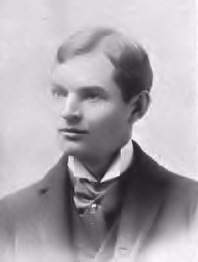 CASADY, Jr.,
James N., a successful young business man of Council Bluffs,
belongs to the family of Casadys so well known throughout Iowa
for their success in business, and the high standing they have
maintained as progressive and upright citizens. Mr. Casady is
a native product, having been born in the city of his present
residence, June 10, 1869. His father was long a resident of
the state and came from Indiana in 1850. His mother's maiden
name was Ellen M. Joiner. CASADY, Jr.,
James N., a successful young business man of Council Bluffs,
belongs to the family of Casadys so well known throughout Iowa
for their success in business, and the high standing they have
maintained as progressive and upright citizens. Mr. Casady is
a native product, having been born in the city of his present
residence, June 10, 1869. His father was long a resident of
the state and came from Indiana in 1850. His mother's maiden
name was Ellen M. Joiner.
Mr.
Casady attended the public schools of his native city,
followed by a four years' course in the Allen academy, located
at 1832-6 Michigan avenue, Chicago; he graduated from this
institution in 1887. His father established a real estate and
loan business in Council Bluffs in 1853, and built up the
largest loan agency in the city, and other extensive interests
by close attention to details. This large and increasing
business was succeeded to by James N., Jr., and is now being
successfully carried on by him. He deals largely in farm and
city property; cares for property of nonresidents; pays taxes
and negotiates loans, and is resident agent of a large number
of well known insurance companies, such as Continental of New
York, Scottish Union and National of Edinburgh, Scotland, and
Sun Fire Office of London, Eng.; London Guarantee and Accident
company, limited, London, Eng. Financial correspondent of
several large eastern institutions, also resident assistant
secretary of the National Surety company of New York, having
power to execute all bonds in his office, known as the Casady
building.
In
politics Mr. Casady is a democrat; is nephew of the Hon. P. M.
Casady, of Des Moines, president of the Des Moines Savings
bank of that city; was married to Miss Mamie Cavanagh of
Omaha, Neb., the only daughter of P. J. Cavanagh, Esq.,
October 12, 1893. They have two children, Geraldine, born
November 29, 1894, and Joiner, born July 24, 1897.
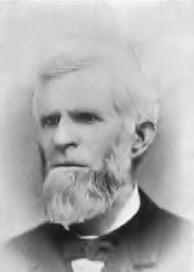 CASADY,
Jefferson P., for many years a resident of Council Bluffs, was
one of a family of brothers who are thoroughly identified with
the history of Iowa, the others being Hon. P M. Casady and
Weir Casady, of Des Moines, and the late Hon. S.
H. Casady, of Sioux City, and J. N.
Casady, of Council Bluffs. Each and all of these have
been potent factors in the development of the state. CASADY,
Jefferson P., for many years a resident of Council Bluffs, was
one of a family of brothers who are thoroughly identified with
the history of Iowa, the others being Hon. P M. Casady and
Weir Casady, of Des Moines, and the late Hon. S.
H. Casady, of Sioux City, and J. N.
Casady, of Council Bluffs. Each and all of these have
been potent factors in the development of the state.
J. P.
Casady was born in Connersville, Ind., September 1, 1828. Of
Scotch-Irish ancestry, the conquering traits of that race were
well reproduced in him. Like so many of the notable men of
America, he was raised upon a farm, attended the public
schools until 18 years of age, afterwards pursuing an academic
course. Having little taste for farm life he chose the
profession of law for his field of labor. He was most
fortunate in receiving his law training from Hon. Samuel W.
Parker, one of a coterie of great lawyers who made the bar of
Indiana. In 1852 Judge Casady moved to Des Moines and was
there admitted to the bar. In the following year he took up
his residence in Council Bluffs, and, in partnership with Hon.
Hadley D. Johnson, opened a law and land office. His fine
talents, united to his conservatism and prudence soon won for
him wide recognition and in 1858 he was elected to the office
of county judge, an office that he filled with marked ability,
conducting his private business at the same time. In 1861 he
was elected a director of the Council Bluffs and St. Joe
Railway company, and afterwards became president of the
road.
Politically, Judge Casady was a democrat,
in the broad and Jeffersonian sense of the word. In 1868 he
was elected to the state senate, serving four years. He was
frequently a delegate to state conventions, and, in 1880, to
the national convention. In 1872 he was nominated for
auditor of State, and, although not elected to the office, ran
far ahead of his ticket, polling many votes from the
opposition. He was not an office-seeker and when he accepted
office it was always at a personal sacrifice.
Judge Casady was widely known for his public spirit and
this was well shown in his skill, diplomacy and untiring
efforts that finally secured the appropriation for the school
for the deaf and dumb, at Council Bluffs. No one in his county
was ever more favorably known than he was, and his influence
was always for good. As a citizen he was universally loved and
respected. In his friendships he was most loyal and
unswerving. Many young men of the west owe their start in life
and much of their success to the kindness and inter-est of
Judge Casady. He was an Odd Fellow and a charter member of
Council Bluffs Lodge No. 49.
On June
16, 1856 he was married to Miss Hannah Joiner. They had five
children; Lawrence, born July 15, 1860, died October 16, 1863;
Jefferson J., born June 18, 1863, died October 27, 1864;
Thomas E., born in 1868, is at present a practicing lawyer in
Council Bluffs; Ida, born September 20, 1865; Albert W., born
November 5, 1870, employed in the office of Deere, Wells &
Co.; Mrs. Casady died May 6, 1882. They were members of the
First Presbyterian church. Judge Casady died April 27,
1892.
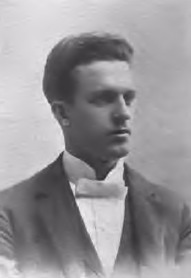 CASADY,
Thomas E., a native resident of Council Bluffs, is one of the
brightest of the younger members of the bar. He was born April
27, 1868. His father, Judge Jefferson P. Casady, was a man
widely known for his abilities as a lawyer and his nobility as
a man and citizen of Iowa. His mother, Mrs. Hannah Joiner
Casady, was of Scotch-Irish ancestry, as was his father, and
the sturdy and estimable traits that belong essentially to his
ancestry are fully developed in the son. CASADY,
Thomas E., a native resident of Council Bluffs, is one of the
brightest of the younger members of the bar. He was born April
27, 1868. His father, Judge Jefferson P. Casady, was a man
widely known for his abilities as a lawyer and his nobility as
a man and citizen of Iowa. His mother, Mrs. Hannah Joiner
Casady, was of Scotch-Irish ancestry, as was his father, and
the sturdy and estimable traits that belong essentially to his
ancestry are fully developed in the son.
In his
boyhood Thomas E. Casady attended the public schools of
Council Bluffs. In 1884 he entered Parsons college at
Fairfield, and was graduated in 1888 with the degree of
bachelor of science. While a student at Parsons college he was
elected president of the Iowa Collegiate association, and as
such presided at the oratorical contest and annual meeting of
the association held in Des Moines in February, 1887. In 1890
he received the degree of master of science from his alma
mater; and the year following was honored by being elected a
member of the board of trustees, serving six years. In 1888 he
entered the law department of the University of Iowa,
remaining until the serious illness of his father required
his presence in Council Bluffs, where he completed his study
with Finley Burke. He was admitted to the bar in the following
year. In January, 1891, he formed a partnership with Mr.
Burke, which continued about four years, since which time he
has practiced alone.
Mr.
Casady is a staunch democrat, and has always been one.
He was appointed assistant United States district attorney for
the southern district, but as the duties of his office
consumed too much time he resigned. In
1898 Mr. Casady was nominated by the democrats of his county
for the office of county attorney, and although he ran over
500 votes ahead of his ticket he was defeated, as was the
whole ticket. The republican majority in the county ranged
from 1,200 to 1,500, while the majority against him was only
between 500 and 600. Mr. Casady good-naturedly
says: "Spain did it "
He was
married November 12, 1895, to Miss Agnes Wickfield Barnard, of
Moline, 111., daughter of H. A. Barnard, a pioneer in the
manufacturing industries of Moline, and now president of the
Barnard & Leas Manufacturing company of that city. Few, if
any, of the lawyers in western Iowa have had better
educational training than Mr. Casady, or taken deeper interest
in scholastic matters. He is a man of high personal character
and integrity, and enjoys the confidence of the people both on
the score of ability and responsibility. He is possessed of a
logical mind, studious habits, courteous bearing, and ability
to talk well to the point, good judgment and common sense, and
a fixed pride and determination to succeed.
The name Casady is closely interwoven in
the legal history of the state, and the subject of this sketch
is well worthy to perpetuate the history so creditably begun
by his elders.
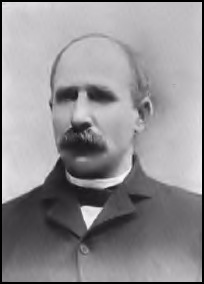 COOPER, John K., of Council Bluffs, member of the
Twenty-fifth General Assembly, and a man who has done much to
advance the educational interests of the state, was born on a
farm near Hollandville, Kent county, Del., April 1, 1845. He
is the son of Benjamin Abbott Cooper, a farmer and school
teacher, who died at the age of 30 years. He was a man of
great promise at the time of his death. The mother's maiden
name was Anna Jump. She died when John was 8 years old. Mr.
Cooper's grandmother, on the paternal side, was a niece of
George Read, one of the signers of the Declaration of
Independence. COOPER, John K., of Council Bluffs, member of the
Twenty-fifth General Assembly, and a man who has done much to
advance the educational interests of the state, was born on a
farm near Hollandville, Kent county, Del., April 1, 1845. He
is the son of Benjamin Abbott Cooper, a farmer and school
teacher, who died at the age of 30 years. He was a man of
great promise at the time of his death. The mother's maiden
name was Anna Jump. She died when John was 8 years old. Mr.
Cooper's grandmother, on the paternal side, was a niece of
George Read, one of the signers of the Declaration of
Independence.
John K. attended the country school
at such times as there was one to attend. At the time of his
boyhood the school system of his native state was not like the
perfect one of today. The people of each district met every
spring and voted on the question: "Tax or no tax," with the
frequent result that no tax won. The teacher was usually
selected with respect to his muscle, and if he could convince
the directors that he could whip any two boys in the school,
he was regarded as the proper man for the place. As a result of all
this, our subject could barely read and write at the outbreak
of the war. The people of his section were divided on the
question of secession, and all against the proposition to free
the negro. Mr. Cooper's guardian was a southern sympathizer,
but the young man was enthusiastic for the cause represented
by "old glory." He ran away at 16, and joined a Maryland
regiment, serving throughout the whole period of the
war.
He was not yet 20 years old when
peace was declared and immediately upon arriving home he
entered school to prepare himself for the vocation of teacher.
Two years were spent in Felton seminary, after which he was
engaged in teaching the schools of Felton and Hollandville. He
came to Iowa in May, 1870, and organized a subscription school
in Missouri Valley. The venture did not prove a success
financially, and he shortly removed to Fremont county, thence
some months later to Pottawattamie county, where he has since
resided.
He was elected county
superintendent of schools in 1879, and re-elected in 1881; was
nominated for county treasurer in 1883, but met with defeat.
During the next year he was a commission dealer and
bookkeeper, but gained more largely of experience than in
wealth. He was elected a member of the school board of Council
Bluffs in 1885, but resigned the following year, and was
elected principal of the Bloomer school. Again, in 1887, he
was elected county superintendent of schools, re-elected in
1889, and again in 1891. In 1893 he was chosen to represent
his county in the lower branch of the general assembly, and
therein made a record satisfactory to his people. In 1894 he
gave up his public life and became the proprietor of a grocery
business, in which he is at present
engaged.
As a soldier he was a private in
Company D, First E. S. Maryland volunteers. He participated in the
battle of Gettysburg, in Lockwood's brigade, Williams'
division, Twelfth Army corps, until they crossed the Potomac,
when his regiment was left on the Maryland side to guard the
Baltimore & Ohio railroad. He is a member of Union Veteran
Legion, Maccabees, Royal Arcanum and A. F. & A. M., and a
member of Council Bluffs school board at the present time. He
has always been a democrat.
June 27,
1882, he was married to Miss Alice Mottaz. They have had two
children, one of whom, a daughter Flora, 9 years of age, is
living. John K., born August 21, 1884, died August 21,
1885.
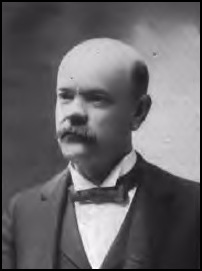 DAY, Frederick Jackson, of Council Bluffs, is
descended from ancestors on both sides who fought in both the
revolution and the war of the rebellion. Jackson J. Day, his father, was born
in 1818 and en-listed as a private in the civil war. His
ancestors fought in the war against King Philip, in the
Narragansett war and in the revolution. He was a prominent
businessman and an extensive traveler. He married Caroline A.
Minier, who was also descended from ancestors who took part in
the revolutionary and civil wars. She was a woman of good
education and strong character, and is now living with a
daughter in Los Angeles, Cal. DAY, Frederick Jackson, of Council Bluffs, is
descended from ancestors on both sides who fought in both the
revolution and the war of the rebellion. Jackson J. Day, his father, was born
in 1818 and en-listed as a private in the civil war. His
ancestors fought in the war against King Philip, in the
Narragansett war and in the revolution. He was a prominent
businessman and an extensive traveler. He married Caroline A.
Minier, who was also descended from ancestors who took part in
the revolutionary and civil wars. She was a woman of good
education and strong character, and is now living with a
daughter in Los Angeles, Cal.
Frederick J. was born October 20,
1859, in Hillsdale county, Mich. Hillsdale county is located
in the southern tier of counties, bordering on Ohio, and is a
beautiful, level and fertile farming country. Hillsdale is the
county seat of Hillsdale county and is situated about midway
between Lake Michigan and Lake Erie, about seventy miles south
of Lansing. Young
Day was educated in the public schools of Michigan and Iowa.
In 1869 the family removed from Michigan to Iowa and located
at Dexter, Dallas county, and in 1870 removed to Stuart,
Guthrie county.
Frederick J. Day removed, in 1881, to Council Bluffs,
where he has since been actively engaged in the real estate,
loan and insurance business. During his experience in that
line of business he has bought and sold a large amount of farm
and city property, and now owns about 500 acres of farm land
and considerable city property. In 1890 he formed a
partnership with Mr. J. P. Hess, under the firm name of Day
& Hess. They have invested over $1,000,000 of eastern
capital in bonds and mortgages, and represent about the same
amount in value of real estate owned by
others.
Mr. Day is a prominent and active
republican and is a member of the city and county committees,
but has never run for office. He is president of the Pomona
Land and Trust company and treasurer of the Council Bluffs
Mutual Building and Loan
association.
In 1885 he was married to Harriet E. Rue,
daughter of the late John B. Rue. They are members of
the First Presbyterian church and have two children: Bessie
V., born February 25, 1886, and Jackson Rue, born May 15,
1890.
The
information on Trails to the Past © Copyright
may be used in personal family history research, with source
citation. The pages in entirety may not be duplicated for
publication in any fashion without the permission of the
owner. Commercial use of any material on this site is not
permitted. Please respect the wishes of those who have
contributed their time and efforts to make this free site
possible.~Thank you! |